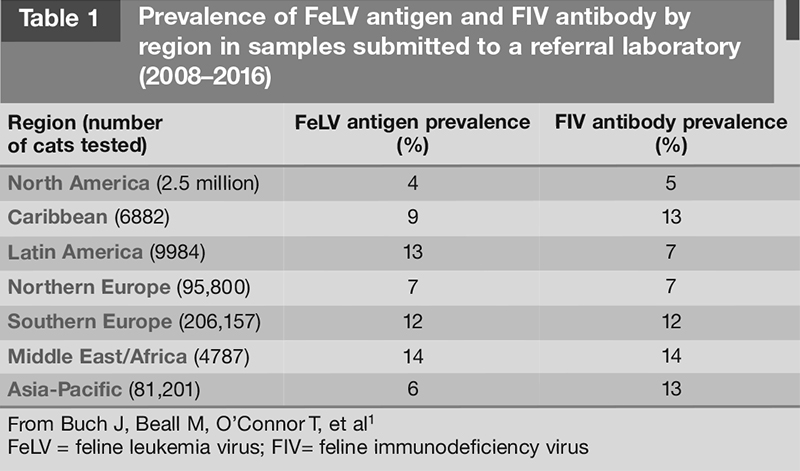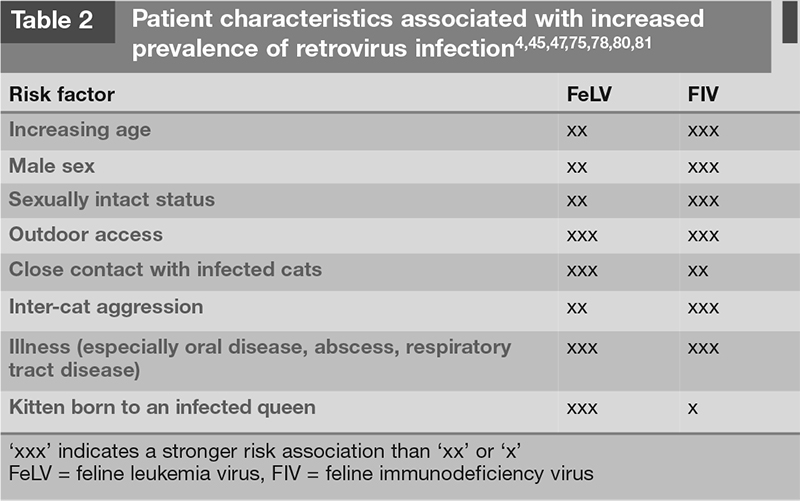This Toolkit was developed from the AAFP Retrovirus Testing and Management Guidelines. Feline leukemia virus (FeLV) and feline immunodeficiency virus (FIV) infections are found in cats worldwide. Both infections are associated with a variety of clinical signs and can impact quality of life and longevity. Key points include:


- The retrovirus status of every cat should be known.
- Cats should be tested as soon as possible after they are acquired, following exposure to an infected cat or a cat of unknown infection status, before vaccination against FeLV or FIV, and whenever clinical illness occurs.
- It may not be possible to determine a cat’s infection status based on testing at a single point in time; repeat testing using different methods could be required.
- Although vaccines are available for FeLV in many countries and FIV in some countries, identification of infected cats remains an important factor for preventing new infections.
- Although FeLV and FIV infections can be associated with clinical disease, some infected cats, especially those infected with FIV, can live for many years with good quality of life.
- There is a paucity of data evaluating retroviral and immunomodulatory treatments for infected cats.
- Management of infected cats should focus on effective preventive healthcare strategies, prompt identification and treatment of illness, and limiting the spread of infection.
Instructions for Use
This Educational Toolkit is intended to be an implementation tool for veterinary professionals to access and gather information quickly. It is not intended to provide a complete review of the scientific data for feline diabetes. In order to gather a deeper understanding of feline diabetes, there are excellent resources for further reading linked in the sidebar of the digital toolkit. We recommend that you familiarize yourself with these resources prior to using this Toolkit.
To use the Toolkit, click the tabs at the top navigation bar to access each page and read more information about each area including diagnosis, treatment, remission strategy, troubleshooting, frequently asked questions (FAQs), and client resources. Each page also has an associated printable PDF that you can use in your practice. Additionally, a link to a printable version of the entire toolkit, which contains information from each page, is included in the navigation bar.
Acknowledgments
The FelineVMA would like to thank IDEXX Laboratories for their educational grant to develop this Toolkit, and for their commitment to help the veterinary community improve the lives of cats.

We also would like to thank Dr. Kelly St. Denis for chairing the Toolkit development and the AAFP Retrovirus Testing and Management Guidelines panel for all their hard work in developing the information.
